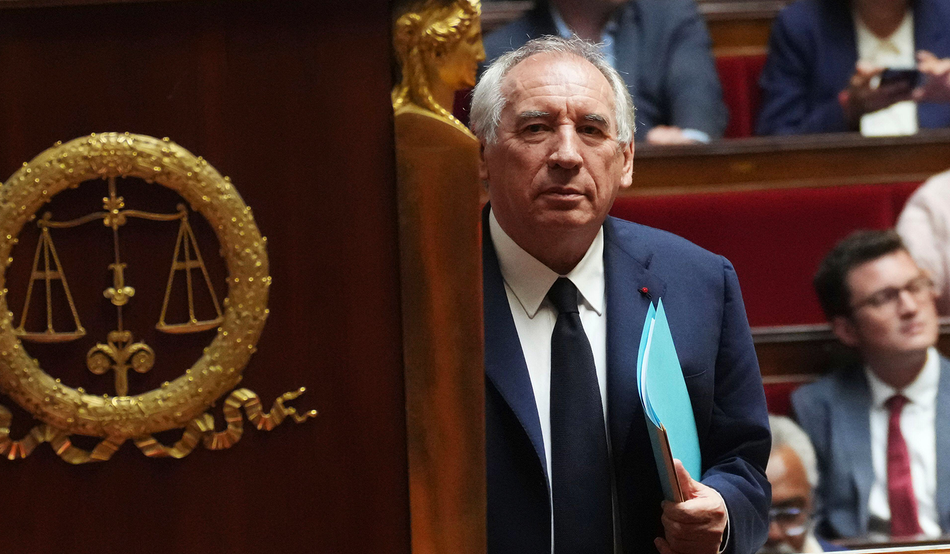France is about to get its fifth prime minister in two years, a week after Britain’s fourth prime minister in three years was forced into an emergency cabinet reshuffle only 14 months since taking office. In both cases, insurgent, populist right-wing leaders untainted by any governmental responsibility are ahead in the polls, rallying economic and anti-immigrant discontent to ever-greater highs.
So are Britain and France on a similar Trumpite track? Are they about to blow up their postwar eras of liberal democracy—and governments of the centre-left and centre-right—in favour of a new breed of dangerous extremists peddling wild promises and conspiracy theories?
It is no less improbable than Trump’s first and second coming. And if France, which holds presidential elections in 2027, were to fall to the populist National Rally, this might further normalise the prospect of Nigel Farage’s Reform UK winning the next British general election, which is due by 2029. Trump’s incredible far-right radicalisation of US politics is encouraging the populists of both France and the UK alike—and alarming their mainstream opponents in equal measure.
There is also a significant chance that, by the time of their respective elections in France and the UK, the right-wing populists of both will have done deals with the centre right, which make them less unpalatable and more electable.
Subject to appeal, the French courts have disbarred the veteran far-right standard bearer Marine Le Pen from entering the presidential race, which has made the younger and smoother Jordan Bardella her likely replacement for the National Rally. With her eye on the win, Le Pen had already jettisoned previous threats to take France out of the European Union and Nato and toned down her pro-Putin rhetoric.
In the UK, the relationship is in flux between Farage’s Reform and the historic Conservative party, while Farage himself—a public school Thatcherite Tory with an Enoch Powell edge in demonising immigration—is generally careful to eschew outright racism and incitement to violence. He, too, is now keeping his distance from Putin.
A populist takeover is far from inevitable in either Britain or France, however. In both countries the populists are parties of protest; they are far less organised than Trump and his Maga team were ahead of the 2024 US election. In France, a kind of popular front rallied Le Pen’s opponents in the last legislative elections, which the National Rally had been projected to win. The same is likely to happen in the 2027 presidential election, and similar tactical voting against “populist extremism” may help Reform’s opponents here.
A huge amount depends on the success or failure of Starmer, and the centrist heirs of Macron, both in containing anti-immigrant sentiment and in reviving their sluggish national economies.
Britain’s new home secretary, Shabana Mahmood, says she will do “whatever it takes” to stop the small boats disgorging tens of thousands of migrants a year into Dover and the Kent coast. But this doesn’t include withdrawing from the international treaties and conventions which allow migrants to claim asylum, and aid their claims in so doing. For Starmer, a top human rights lawyer, outright repudiation of these charters is almost certainly a red line. Reform, on the other hand, has no hesitation in crossing it. If the small boats continue, Farage and Reform will be able to claim that they could—and would—do more to stop the boats.
On the economic front, a public debt crisis is especially acute in France, where there is no parliamentary majority for any notable public spending cuts. But the UK is in only a marginally stronger position, and after massive controversy over tax increases and welfare cuts in the opening months of the Labour government, Starmer has only limited room for manoeuvre.
Several years of political life and death add to the drama. Starmer might be replaced before 2029. Farage might implode or fall ill (like Starmer, he is into his sixties). The centrist candidates to replace Macron may suddenly flourish under the spotlight, much as Macron did from a standing start in 2017. Macron cannot stand in the 2027 elections, under the French constitution. This means French centrists don’t have the problem that beset the Democrats in having to support Biden until the position became desperate.
Even then, Trump won by only a 1.5 per cent vote margin. As the Japanese put it, “in politics, an inch ahead is darkness.” There are still several inches to go before the populists triumph.













